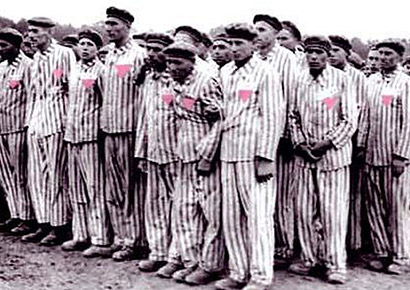German government moves to pardon and compensate convicted gay men

Gay victims of the Nazis
Germany’s Cabinet has approved a bill that aims to overturn the convictions of gay men under a law used by the Nazis to arrest and kill them.
The bill is believed to affect around 50,000 men who were convicted after the Second World War, between 1949 and 1969, under the infamous Paragraph 175, which barred sex between men.
In a global first, those who are still alive will also be awarded financial compensation for their suffering.
If the bill is approved by lawmakers, survivors of the law will receive a once off €3,000 (R47,044) sum in addition to €1,500 (R23,522) for each year that they were jailed.
Paragraph 175 first came into effect in 15 May 1871. Under the Nazi regime, the law was broadened; the penalty was increased from six months to five years in jail and it was expanded to not only cover penetrative intercourse but any type of sexual activity between men.
Paragraph 175 was used by the Nazis to arrest gay men who were put into concentration camps, thousands of whom died. The law remained on the statute books after the war and continued to be actively enforced until 1969. It was only formally abolished in 1994.
German Justice Minister Heiko Maas said that the bill to quash the men’s convictions was “long overdue.” He explained: “They were persecuted, punished and ostracised by the German state just because of their love for men, because of their sexual identity.”
The move was also welcomed by Germany’s Lesbian and Gay Federation, which said that the proposed law would finally address “serious mass human rights violations that were committed against homosexual people by the democratic state”.
In January, thousands of men in the UK were posthumously pardoned by the government for past convictions under historic laws that made consensual gay sex illegal. Similar gay pardon laws are being planned in countries including New Zealand and Canada.
Leave a Reply